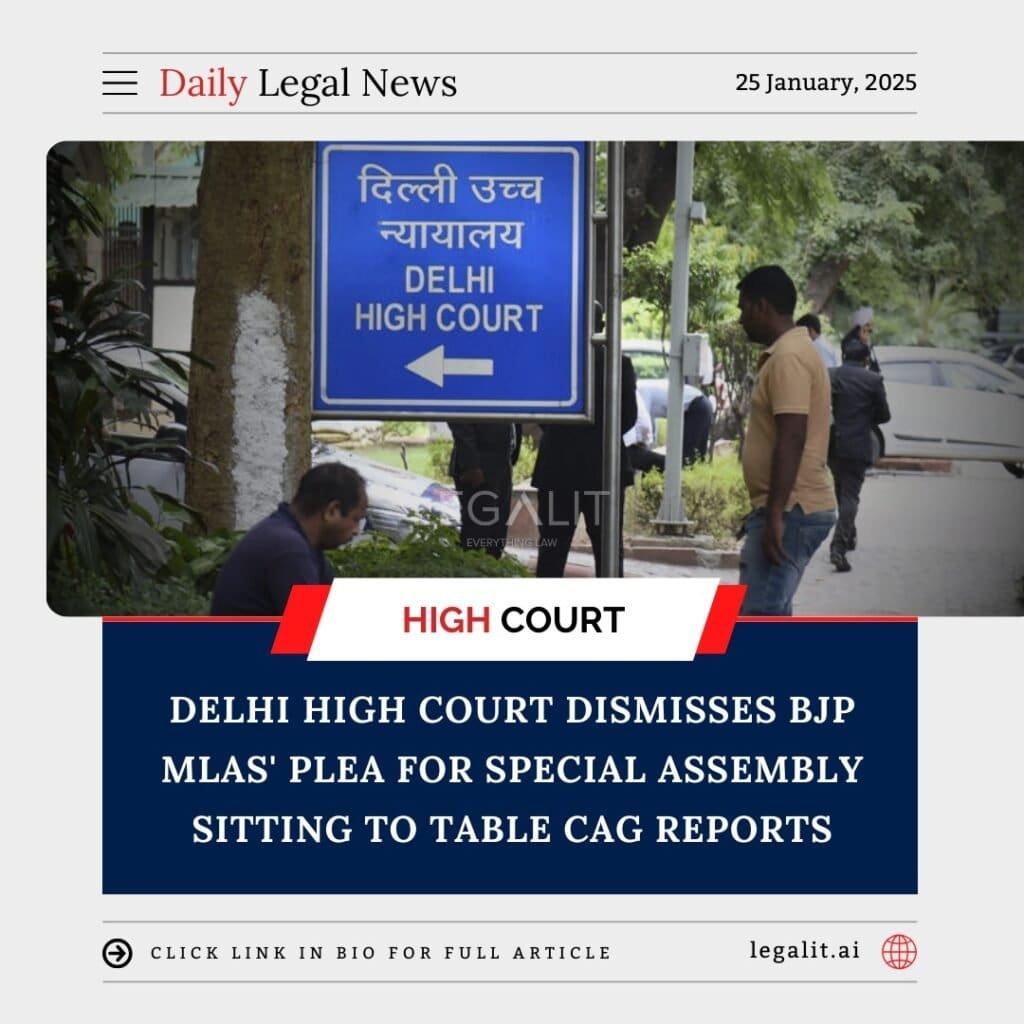
Background
The Delhi High Court recently rejected a plea filed by BJP MLAs seeking a special sitting of the Delhi Legislative Assembly to table reports from the Comptroller and Auditor General (CAG) of India. The petitioners argued that the reports, which are crucial for public accountability and transparency, had not been tabled as required by law.
The plea centered on the principle of legislative responsibility, with the petitioners contending that the Delhi government had failed to fulfill its constitutional obligation to present the CAG reports before the Assembly.
Court’s Rationale
- Scope of Judicial Intervention:
- The court observed that decisions regarding the scheduling of legislative sittings fall within the purview of the Speaker and the government.
- It emphasized that the judiciary cannot dictate or interfere in legislative procedures unless there is a clear violation of constitutional provisions.
- Discretion of the Legislature:
- The High Court highlighted that it is the prerogative of the Assembly to determine when and how reports are tabled.
- The court noted that no specific rule or provision mandates an immediate or special sitting for the presentation of CAG reports.
- No Grounds for Urgency:
- The court found no compelling evidence to justify a special sitting. It stated that the petitioners had not demonstrated any pressing need that warranted judicial intervention.
Implications of the Judgment
- Reinforcement of Legislative Independence:
- The ruling underscores the autonomy of legislative bodies in managing their internal affairs, free from judicial interference.
- Accountability through Established Procedures:
- While the plea was dismissed, the court’s remarks highlight the importance of adhering to established legislative practices for ensuring accountability and transparency.
- No Shortcut to Legislative Oversight:
- The judgment reinforces that political differences or disagreements over governance must be resolved within the legislative framework rather than through judicial intervention.
Existing Practices and Concerns
CAG reports play a vital role in exposing financial irregularities and ensuring governmental accountability. However, delays in tabling these reports can hinder public scrutiny and weaken institutional transparency. While the judiciary refrains from intervening in legislative matters, it is incumbent on legislatures to fulfill their constitutional duties promptly.
Conclusion
The Delhi High Court’s decision reflects the judiciary’s cautious approach to maintaining the separation of powers between the legislative and judicial branches. While the dismissal of the plea ensures legislative autonomy, it also highlights the need for legislative bodies to prioritize accountability and transparency. The case underscores the importance of balancing institutional independence with the public’s right to timely information.